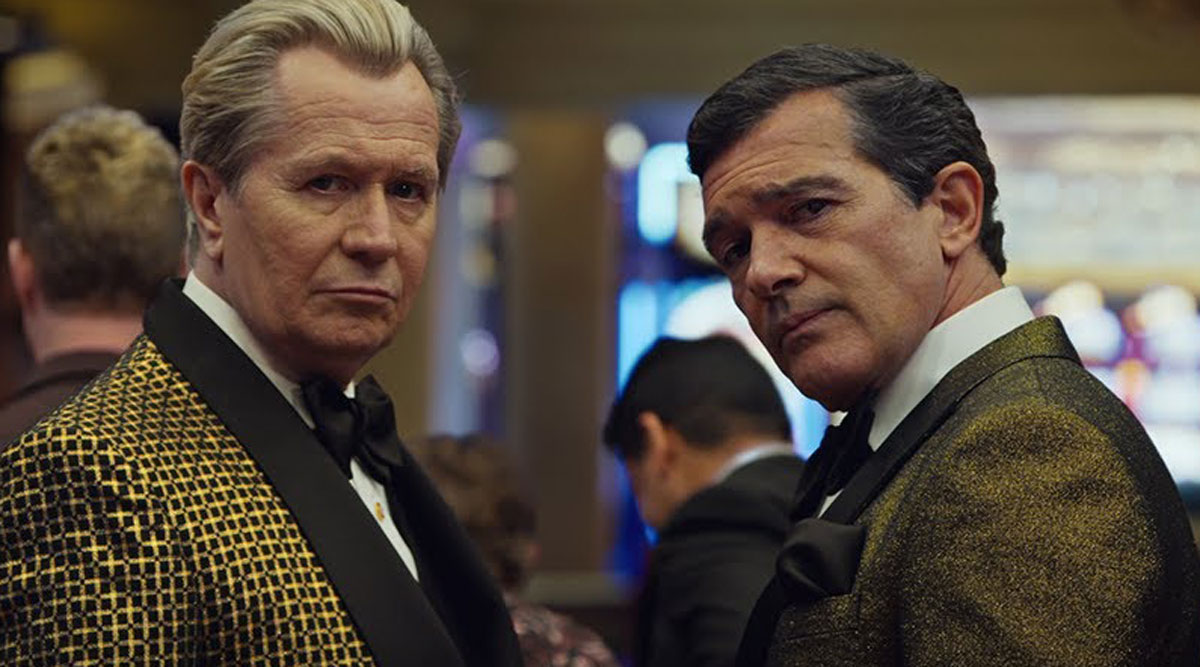Whistleblowing. It was the subject of the movie and also the intense focus of Washington, D.C. on the night the National Archives hosted a viewing of The Laundromat, a movie based on the International Consortium of Investigative Journalists‘ 2016 Panama Papers investigation.
The Netflix film, directed by Steven Soderbergh and starring Meryl Streep, Gary Oldman and Antonio Banderas, was being shown on Tuesday ahead of its Sept. 27 release in U.S. cinemas.
Earlier in the evening, U.S. House of Representatives Speaker Nancy Pelosi had announced the beginning of impeachment proceedings related to President Donald Trump’s phone call urging Ukraine’s president to investigate former Vice President and current contender for the Democratic nomination for president, Joseph Biden, whose son served on the board of a Ukrainian gas company.
The whistleblower disclosure that led to the call for impeachment proceedings hovered over the discussion that followed the screening, though it mostly focused on how to bring home the lessons of the Panama Papers to a broader audience.
“Homo sapiens have a substance abuse problem, and the substance is corruption,” said Soderbergh in the question and answer session. The director called it the “dark matter” of the universe that we haven’t found a way to talk about.
But first it has to be disclosed, and that isn’t easy, said former ICIJ reporter Jake Bernstein, whose book Secrecy World provided the foundation for the script.
“Whistleblowers can face real, serious repercussions, as can journalists and other people trying to bring this stuff to light.”
He mentioned Daphne Caruana Galizia, an investigative journalist in Malta who was murdered when a bomb blew up her car. Her son Matthew, worked for ICIJ at the time.
Soderbergh and screenplay writer Scott Z. Burns said they made the emotional focus of The Laundromat a widow whose husband was killed in a boating accident on Lake George in New York and couldn’t collect on insurance. The boat tour company had been defrauded by a fake policy created by shell companies incorporated by the Panama law firm Mossack Fonseca. The firm’s 11.5 million documents, turned over to journalists by a still unknown whistleblower, provided the basis for the Panama Papers.
Meryl Streep plays the designated “every person” in the film, and then reappears in another guise in the film’s denouement.
Rather than focusing on journalists or rich people to tell the story, Burns said, they wanted to turn the focus “on how this affects all of us.”
The film also spends a lot of time on Jürgen Mossack and Ramón Fonseca, who headed the now dissolved law firm. The two appear in a variety of clownish costumes discussing their business and later sitting in a jail cell as the film provides an explainer of various tactics used to hide ownership of offshore money.
The film goes to lengths to acknowledge that not all “offshore” companies are literally offshore, acknowledging the role of the United States in creating opaque corporate structures in Delaware and elsewhere. It notes that Soderbergh has five Delaware corporations, a figure he updated to six in the Q&A. Soderbergh said he forms Limited Liability Corporations when he makes movies so that “if someone doesn’t like the movie” they can’t go after him directly. And, no, he said, addressing a point made in the movie, he has never been to Delaware.
One of his goals in screenwriting, said Burns, who also was a producer of the climate documentary An Inconvenient Truth, is to “have somebody say, ‘Now I understand. Now I’m going to pay attention.’”
Bernstein said that “one of my favorite comments about the movie was ‘Now I finally understand the Panama Papers.’”
In the end, the movie puts blame for a broken system on the United States, with Streep voicing passages from a “manifesto” by the anonymous Panama Papers whistleblower, John Doe, explaining his actions. When it takes a whistleblower to sound the alarm, Streep says with urgency, “It signals that democracy’s checks and balances have all failed, that the breakdown is systemic and that severe instability could be just around the corner.
“Tax evasion cannot possibly be fixed while elected officials are pleading for money from the very elites who have the strongest incentives to avoid taxes. … Reform of America’s broken campaign finance system cannot wait.”
The film will be shown in U.S. cinemas from Sept. 27 before a global release on Netflix on Oct. 18.







